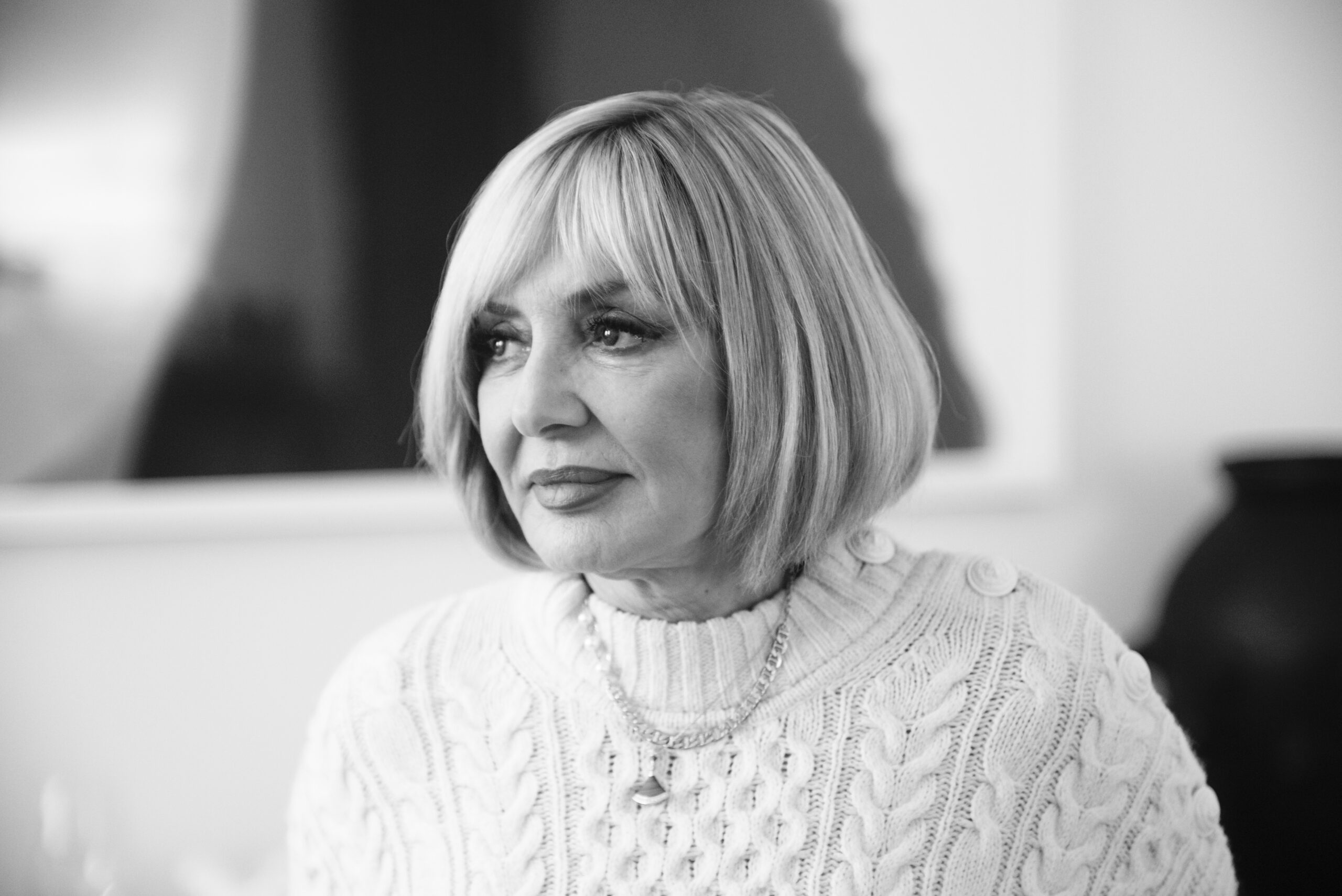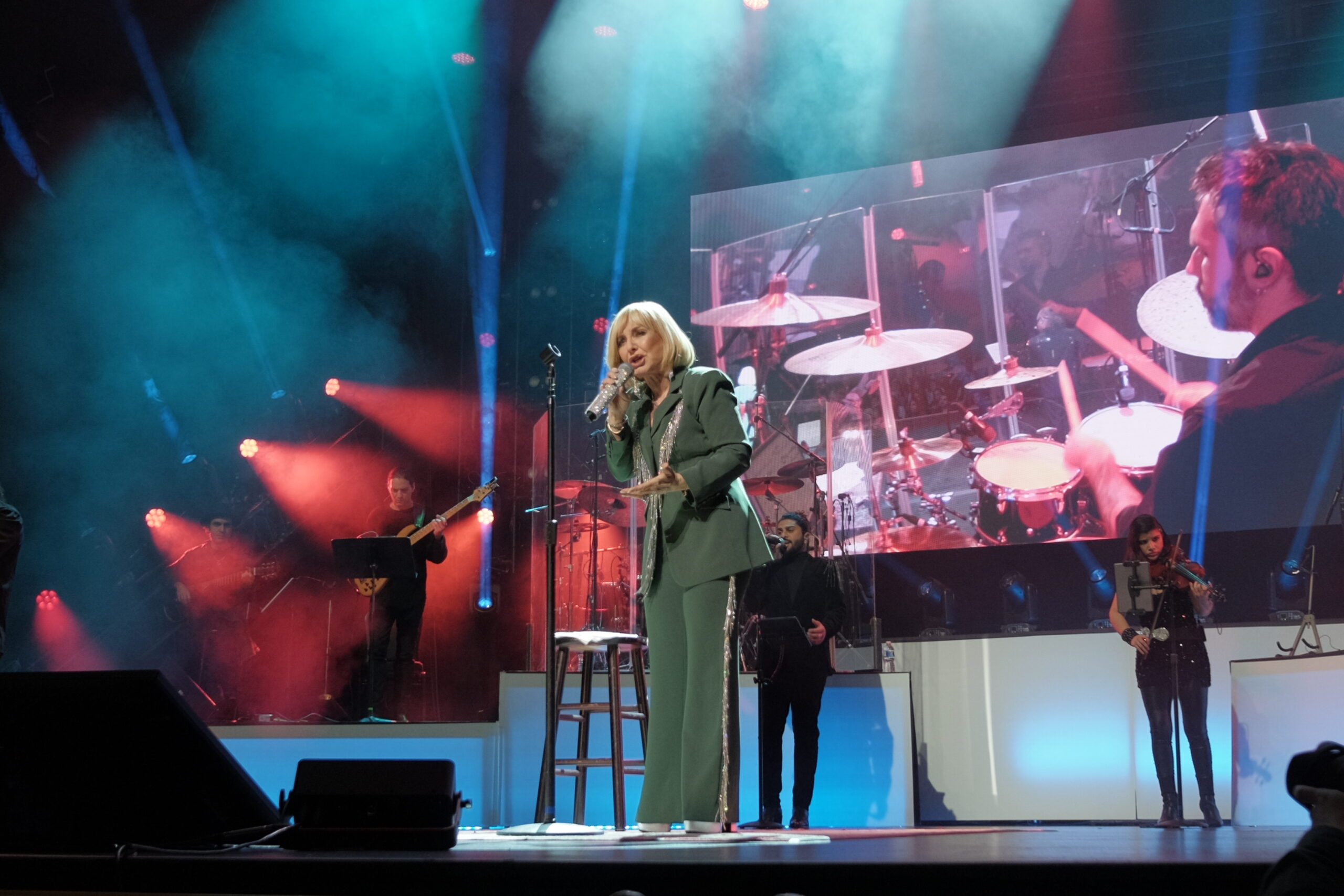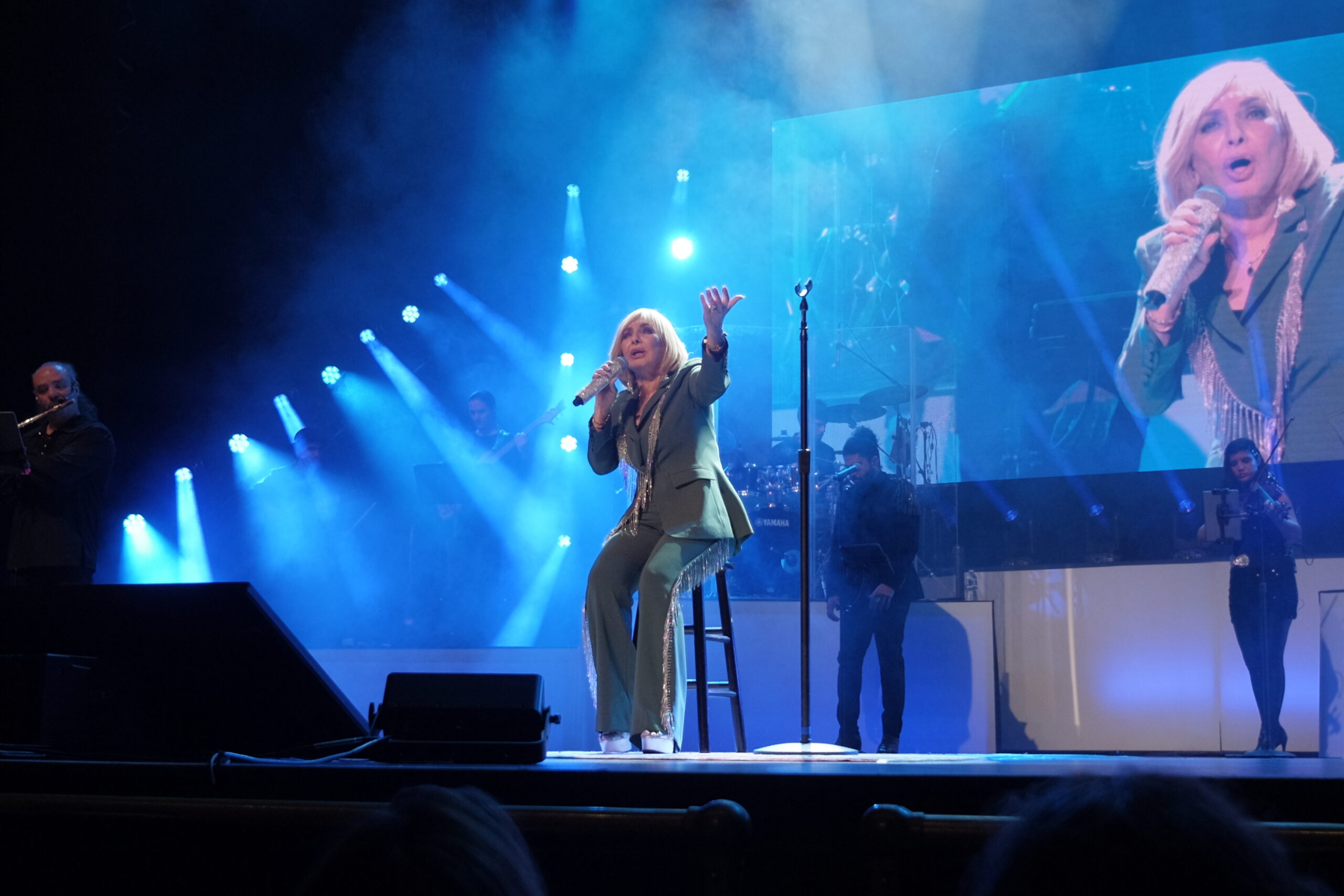Additional Information
In the third row of New York’s Beacon Theatre, Mahnoosh Arsanjani is on her feet, singing in unison with her idol. She and her friend Bita Zavari have flown in from California to see Iran’s greatest pop singer, Googoosh, on stage one last time. “I couldn’t miss it,” says Mahnoosh. My family came to the U.S. when I was seven, and Googoosh’s songs accompanied my childhood. Even if it’s a bit of our parents’ music, it’s ours too!”
For several months now, the artist has been bidding farewell to the stage as part of an emotional world tour, entitled The Last Chapters, after 70 years (you read that right!) of a career rich in songs, films, and bans. Pan M 360 caught up with her on the eve of her last ever New York concert.

Every nation has its diva. We in Montreal have Céline Dion. The U.S. has Barbara Streisand and Diana Ross, the Lebanese have Fairuz, and the Italians, have Raffaella Carrà. The Iranians have Googoosh. Born in 1950 in Tehran, Fāegheh Atashin was put on the stage by her father at the age of three, and rose to fame at a very early age, before becoming the propeller of cultural Westernization in the country in the 1960s and 1970s. In the ‘70s, she sang disco and pop hits such as “Talagh” (Divorce), “Makhlough” (Creature), and “Pol” (Bridge), songs that today can often be heard remixed or sampled for the dancefloor. While some consider her too commercial, a majority of Persians have elevated her to a living goddess status.
In her suite on Manhattan’s Fifth Avenue, the 73-year-old singer, with hair and make-up done to perfection, looks petite, a contrast with the powerful, humorous persona she portrays on stage. The tour is scheduled to run until 2025. It’s her way of thanking and saying goodbye to her beloved public, a relationship she’s nurtured since childhood. After New York, Dusseldorf awaits her later in January, followed by Abu Dhabi, Istanbul, and London.
Time to wrap it up
“I think it’s time to wrap it up,” Googoosh says. “After 70 years of singing and acting, with the exception of 21 years in my life. I have many other projects, I’m working on a book, I have a foundation, called Pol Foundation, which aims to support young artists in their artistic education.”
After the Islamic Revolution of 1979, women’s voices in Iran were silenced. Googoosh was condemned to isolation for over twenty years until she left the country for good in 2000. Since then, she has lived in Los Angeles (except two years in Toronto between 2000 and 2002), resumed touring, and has released about a dozen albums.

On stage at the Beacon Theatre, the day after our meeting, she shows great generosity towards her older audience, who saw her grow up, as well as her younger crowd, who consider her a bit of an endearing godmother. The 2600-seat theater is packed with people of all ages and social classes. People dressed up, taking photos as if to say “I was there.” The vast majority are of Iranian origin, and the diva speaks only Farsi on stage. The concert opens with a heartfelt rendition of “Talagh,” accompanied by images on the screen of Iranian women fighters and photos of Mahsa Jina Amini, the 22-year-old Kurdish girl murdered by morality police in September 2022 for allegedly wearing an inappropriate headscarf.
Googoosh has never hidden her support for the Women, Life, Freedom movement, and the LGBTQ2S+ community. In 2014, the video for her song “Behesht” (Paradise) featured a gay couple being the victim of repression. While she doesn’t verbally condemn the mullahs’ regime, she never ceases to celebrate those who resist it.
Celebrating freedom
She knows what she’s talking about. Her 21 years away from the stage represent a dark period for the star. Most of her colleagues and friends in the entertainment world had already fled. “It was very hard for me,” she recalls. “They took away my art, my profession, my love, my life, everything. From the age of three, I was on the stage. Somehow, I was born for the stage and then, it was taken away from me. I thought I was finished forever, I thought nobody wanted to hear me sing at that point.”
She was wrong: during her isolation, her songs and films remained in demand on the black market and among the diaspora. Thanks to new technologies, such as the Internet and clandestine satellites, she saw that her love from the Iranian public never died. When she left Iran in 2000, she embarked on a world tour, entitled The Comeback Tour, a real reunion with fans. “In 2000, I was excited, moved, and happy. I was reunited with the public that I love. In contrast, this tour today is full of sorrow. I cry a lot on stage, and I have to learn to control myself. Saying goodbye isn’t a pleasant feeling. It’s bittersweet.”

The context has changed since her departure. Women are still not allowed to sing alone on stage in Iran, unless they perform in front of an all-female audience or are accompanied by a man. On social media, a new generation of artists defy these prohibitions, sharing their music with the world. “I am so happy and excited to see these new faces, Googoosh says. “I forget their names, I’m bad with names, but I hear their voices. I have access to these fantastic singers through social media and I am grateful for what they’re doing, what they’re trying to show. They show that women can sing very well, even better than me. Because they are the new, the future. I’m part of an older generation. I’m so happy that they are rising.”
A stage cannon
On stage, the sadness the star says she feels is transformed into a genuine connection with the crowd, who sing along, laugh at her jokes, cry, and shout words of love. She knows what her fans want: the great pop and disco hits of the pre-Revolution era. The diva sings “Pol”, “Hamsafar,” “Kooh,” “Mano To” and “Jaddeh,” among others. Her ten-piece band; (keyboards, flute, two guitars, bass, drummer, backing vocalist, violin, percussion, and electric double bass) reproduces the sounds of the 1970s with a contemporary flavour. On the giant screen behind her, nostalgic images of the young Googoosh merge with the concert broadcast.
After a long intermission, the artist returns to the stage. She has changed from her long crystal dress to an olive-green pantsuit with sequined fringes. She goes on with “Hejrat” and “Maah Pishooni.” At the first recognizable notes of “Makhlough,” her smashing hit, the penultimate song, the room erupts in tears and cries as people rush to the front to cheer her on and blow kisses.
According to Mahnoosh Arsanjani, the California fan, there are some nasty rumors going around: Googoosh might be now too old for the stage. Mahnoosh disagrees. “But you see what she can do. The voice is there, her power is still there!”
Photos by Siavash Rokni
























